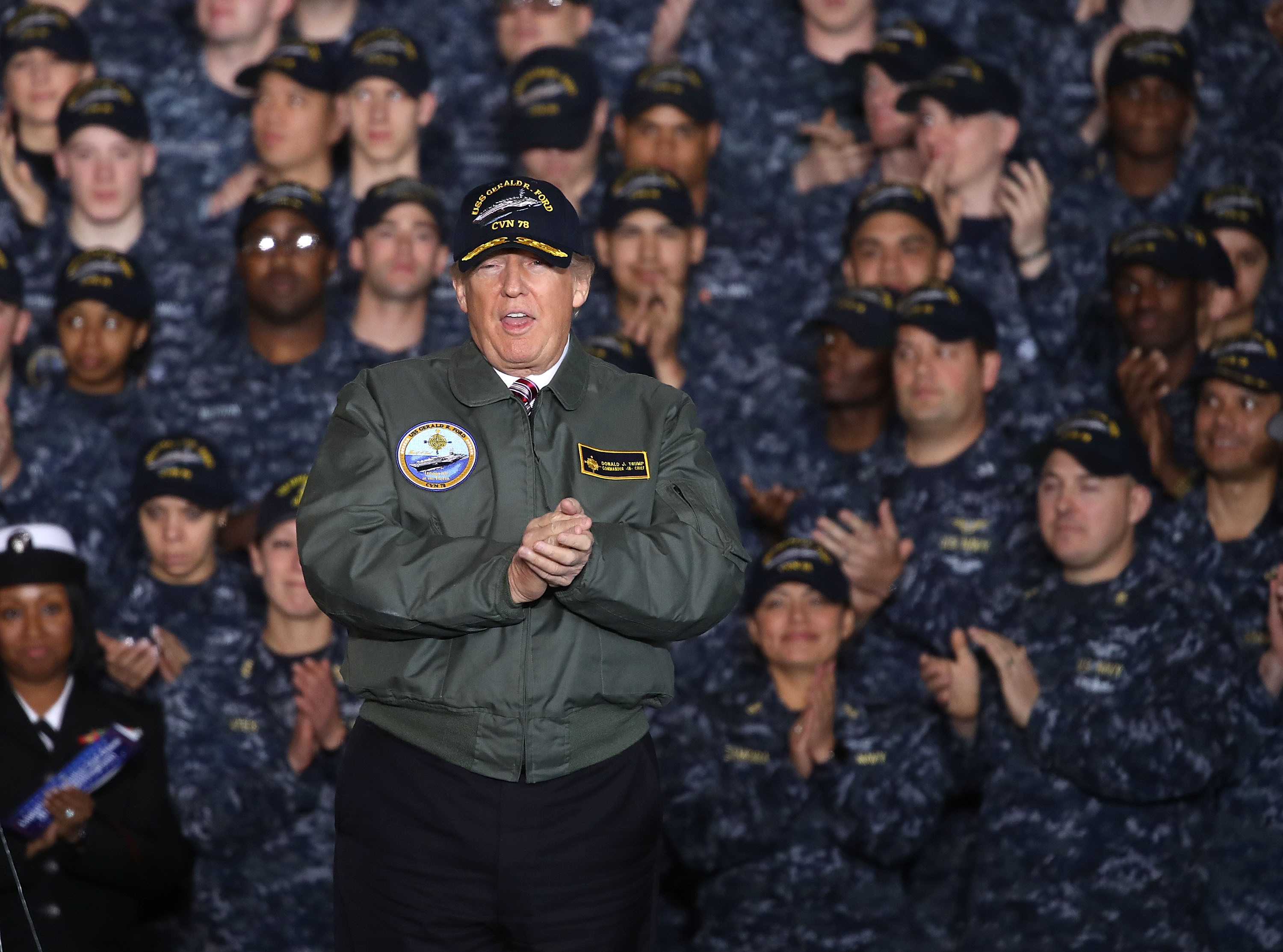Trump has no clue what to do about North Korea — and he doesn't really care
The president's disinterest in the details of his office could prove disastrous


President Trump is headed toward a conflict with North Korea that he likely doesn't understand. It's unlikely he has any interest in understanding it, either. The president's inattention to the institutional realities of global politics and his lack of interest in the work of governing are combining for a dangerous showdown with a nuclear-armed power.
Trump announced on Tuesday afternoon that "any more threats" to the United States from North Korea would result in "fire and fury," and "power the likes of which this world has never seen before.” The president's remarks came on the heels of a Washington Post report detailing how the rogue nation has developed the technology to place a miniaturized nuclear warhead on the tip of an ICBM capable of reaching the United States.
Trump drew a red line. North Korea crossed it hours later when it said in a statement that it would effectively burn the U.S. territory of Guam to the ground. It was a textbook example of why you don't bluff in foreign policy.
The Week
Escape your echo chamber. Get the facts behind the news, plus analysis from multiple perspectives.

Sign up for The Week's Free Newsletters
From our morning news briefing to a weekly Good News Newsletter, get the best of The Week delivered directly to your inbox.
From our morning news briefing to a weekly Good News Newsletter, get the best of The Week delivered directly to your inbox.
Now Trump surrogates and allies on television are spinning military action as inevitable. But they leave out a very important fact: that the president and his administration repeatedly ignored attempts from the outgoing Obama administration to brief them on the foreign policy challenges facing the new team and, once in office, Trump has demonstrated next to no interest in governing.
Dysfunction has plagued the Trump White House for the entirety of the administration's first six and a half months. Trump is uninterested in finding people to staff necessary positions and run the government efficiently. He has thus far spent his tenure in office tweeting, going to rallies, making other world leaders feel uncomfortable, and generally reverse-Midas-touching every single situation he gets involved in.
It's been like that since before the president was sworn into office. Two days before Trump's inauguration The New York Times published an article by Mark Landler warning of the ineptitude of the Trump administration as it stood on the precipice of taking power.
Landler described how the Obama administration's team had prepared "nearly 1,000 pages of classified material on North Korea’s nuclear program, the military campaign against the Islamic State, tensions in the South China Sea, and every other kind of threat the new team could face in its first weeks in office." But it was unclear to Obama administration officials, Landler continued, whether anyone in Trump's team had read a single page of those briefings.
A free daily email with the biggest news stories of the day – and the best features from TheWeek.com
Once in office, Trump delegated the details of war to his military commanders — an unprecedented abdication of responsibility that has already led to a jump in civilian deaths and military action in the Middle East. But the president — who once said on the campaign trail that he knew more about the terror group ISIS than the military did — seems comfortable with the situation. He's relying on the military more and more, both within and without the White House.
Yet for all his talk about how much he loves "the generals," like Chief of Staff John Kelly and Secretary of Defense James Mattis, Trump has little care for their counsel. The president isn't interested in briefings that go over half a page. The information he craves comes twice a day from aides who collect complimentary news stories for his perusal. He reportedly didn't even bother talking with his national security team before launching those rhetorical bombs at North Korea. Trump isn't interested in the details of governing the nation, and war is no different.
It seems what Trump loves most about the military — excepting, of course, their ability to make things go boom — is the fact that they've taken the pressure off of him when it comes to actual decision making.
But there is one decision they can't take away: whether or not to go to war. And though that power technically lies with Congress, it's been so eroded over the decades that Trump wouldn't be stopped from personally directing the military to attack North Korea. And, of course, the president alone has the power to order a nuclear strike.
Given what we know about how the president governs and receives information he is given by aides, the possibility for an uninformed and rash act of war with North Korea is high, higher perhaps than with almost any other president in history. This could have been avoided if Trump had the slightest interest in the particulars of wielding power. Unfortunately he does not.
God save us all.
Eoin Higgins is a journalist from western Massachusetts. His work has appeared in Fairness and Accuracy in Reporting, The Washington Post, The Outline, and numerous other outlets.
-
 Why is the Pentagon taking over the military’s independent newspaper?
Why is the Pentagon taking over the military’s independent newspaper?Today’s Big Question Stars and Stripes is published by the Defense Department but is editorially independent
-
 How Mars influences Earth’s climate
How Mars influences Earth’s climateThe explainer A pull in the right direction
-
 ‘The science is clear’
‘The science is clear’Instant Opinion Opinion, comment and editorials of the day
-
 Why Greenland’s natural resources are nearly impossible to mine
Why Greenland’s natural resources are nearly impossible to mineThe Explainer The country’s natural landscape makes the task extremely difficult
-
 Iran cuts internet as protests escalate
Iran cuts internet as protests escalateSpeed Reada Government buildings across the country have been set on fire
-
 US nabs ‘shadow’ tanker claimed by Russia
US nabs ‘shadow’ tanker claimed by RussiaSpeed Read The ship was one of two vessels seized by the US military
-
 How Bulgaria’s government fell amid mass protests
How Bulgaria’s government fell amid mass protestsThe Explainer The country’s prime minister resigned as part of the fallout
-
 Femicide: Italy’s newest crime
Femicide: Italy’s newest crimeThe Explainer Landmark law to criminalise murder of a woman as an ‘act of hatred’ or ‘subjugation’ but critics say Italy is still deeply patriarchal
-
 Brazil’s Bolsonaro behind bars after appeals run out
Brazil’s Bolsonaro behind bars after appeals run outSpeed Read He will serve 27 years in prison
-
 Americans traveling abroad face renewed criticism in the Trump era
Americans traveling abroad face renewed criticism in the Trump eraThe Explainer Some of Trump’s behavior has Americans being questioned
-
 Nigeria confused by Trump invasion threat
Nigeria confused by Trump invasion threatSpeed Read Trump has claimed the country is persecuting Christians
